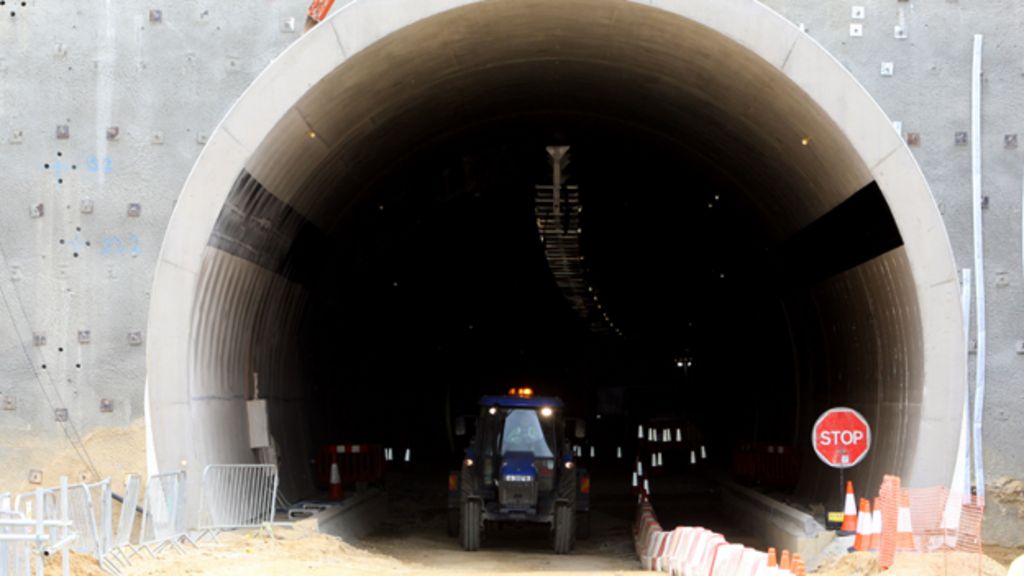#railroads
Here's What Train Service Looks Like in NY After Ida's Damaging Floods
#subways #delaystransportation #transitsystems #airports #floods #railroads #stationsandterminalspassenger #buses #amtrak #metropolitantransportationauthority #newjerseytransit #longislandrailroadco #newyorkcity #hurricaneida2021 #news
Readers' big infrastructure projects
Blue-sky thinking.
The Hebredies --- Faeros --- Iceland --- Greenland --- Labrador railway link seems ... interesting.
Built as a linked chain of floating submerged tunnels might be viable. Total transit time is given as 15 hours.
With 10 minute headways, 90 trains could be transiting in one direction at any time.
At 1,000 passengers each (about 25 railcars per train), capacity could reach 90,000 passengers/day, again, one-way. 2008 UK-US air traval was 18.1 million passenbers, or about 50,000/day.
Depending on routing, speed, and stops, total transit time might vary, though I see roughly 10 ---15 hours as being likely, say between Edinburgh, Scotland, and St. Johns, Newfoundland and Labrador. That's slower than commercial flight (about 6 hours), but should be with more room and comfort, if with a less impressive view.
There might be certain challenges in achieving this. As welll as unforseen consequences.
https://www.bbc.com/news/magazine-23969607
#Megaprojects #Railroads #HighSpeedRail #TransAtlanticTunnel
8 Likes
21 Comments
In all three countries the railroad corporations either failed—ending up in receivership—or were rescued by nation-states, which forgave loans, renegotiated terms of payment, or nationalized the roads. Their failures as businesses were only the beginning. The railroads were also political failures. Having helped both to corrupt and to transform the political system by creating the modern corporate lobby, which they used to compete against each other, they then found it an expensive and sometimes nearly impossible burden to bear. Their political activities in the western United States and Canada were by the end of the century increasingly counterproductive. Politically, as well as financially, they often became wards of the courts. Finally, they were, in large part, social failures. They lured settlers into places where they produced crops, cattle, and minerals beyond what markets could profitably absorb and where their production yielded great environmental and social harm. It was no wonder that railroad corporations came to be hated, and that opposition to them as monopolies—one of the key words necessary in order to understand late nineteenth-century American and Canadian politics—fueled the reform movements of three countries. These railroad failures are essential to understanding the complicated development of modernity and the historical role of corporations in it.
Richard White, Railroaded: The Transcontinentals and the Making of Modern America
Probably the best example of how a historian reinterprets the past in light of the present. In White's case, he had watched the burst of the dot.com bubble and the fall of Enron and Worldcom. He was aware that the corporate Emperor frequently had no clothes. Turning to look at the transcontinental railroads, he found them to be far less competent than previous historians described. The railroads succeeded in funneling money - public and private - into the pockets of the owners. At least briefly. They did so at the expense of nearly every other aspect of the country.
White also has a wickedly sharp pen. Some choice lines:
Scheming, manipulative, at once calculating and volatile, Durant bridged antebellum America and the Gilded Age like some strange hybrid character from Herman Melville and Mark Twain. The only high roads Durant preferred were those on his railroad. He never took an ethical high road. He betrayed partners, and he betrayed strangers. When there was no low road, he blazed one.
In 1888 Edward Bellamy, surely one of the worst novelists of the nineteenth century, wrote, as bad novelists often do, a best seller. The premise of Looking Backward was that society had become one big corporation and all productive property had fallen under collective management.
The issue facing the transcontinental railroads was a simple one. Having built ahead of demand, they had to create traffic in places where there was precious little to sell. Given their high fixed costs, the railroads could not simply wait for profitable traffic to appear. Hauling something, even at a loss, was better than hauling nothing. In attempting to cut economic losses, the railroads helped create both what might be called dumb growth and environmental catastrophes.
A wonderfully biting take on an American mythology. Read it by the light of a burning copy of Stephen Ambrose's #NothingLikeItInTheWorld
Tom Lin Makes His Debut With ‘The Thousand Crimes of Ming Tsu’
#booksandliterature #chineseamericans #thethousandcrimesofmingtsubook #writingandwriters #contenttypepersonalprofile #railroads #lintom #westernstatesus #california #china #raceandethnicity #asianamericans #zhangcpam #obrehttea #zhangjennytinghui #northannaauthor #inlandbook #outlawedbook #fourtreasuresoftheskybook #howmuchofthesehillsisgoldbook #news






